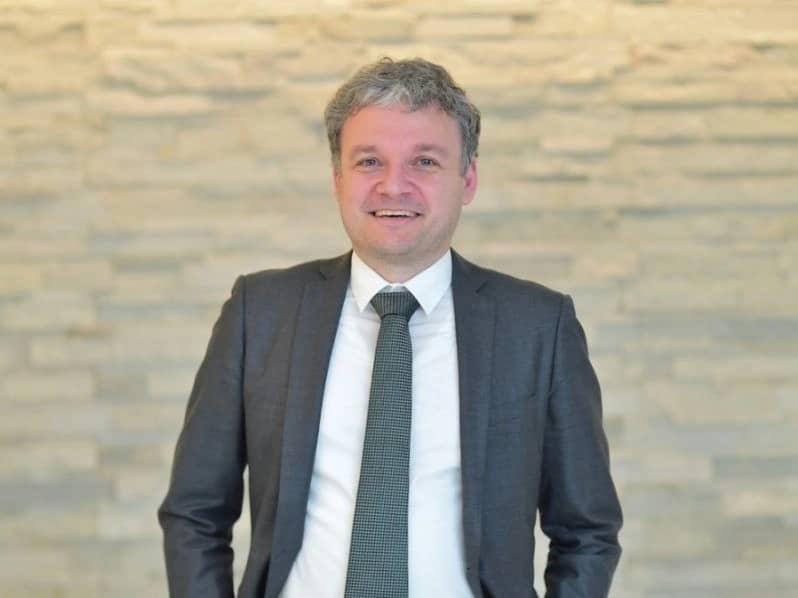订阅 wiki
Share wiki
Bookmark
Fernando Luis Vázquez Cao
0%
Fernando Luis Vázquez Cao
费尔南多·路易斯·巴斯克斯·曹 (Fernando Luis Vázquez Cao) 是 SBI Digital Asset Holdings 的首席执行官、Chainlink Labs 的银行和资本市场总裁,并在多家金融和科技组织的董事会任职。
早年生活
巴斯克斯·曹是西班牙人,在日本居住约二十年。他的早期职业生涯始于学术界,在 1990 年代初,他积极参与 Linux 和开源软件社区。 [1] [2]
教育背景
巴斯克斯·曹就读于西班牙维戈大学,并在那里担任研究员。他的学术工作和参与开源运动为他后来在科技领域的发展奠定了基础。 [3] [8]
职业生涯
巴斯克斯·曹的职业生涯始于学术界,之后于 2003 年加入日本电信公司 NTT 集团,转型到企业界。在 NTT,他担任多个职位,并且是该公司开源软件中心的创始成员和技术总监。在这个职位上,他领导一个团队为现代云和互联网服务的基础开源项目做出了重大贡献,专注于为关键任务系统开发企业级功能,这为后来与区块链技术合作奠定了基础。
2016 年,他加入日本金融集团 SBI 集团,进入金融科技行业。他在该集团内担任多个高级职位,包括 Japannext 的首席技术官以及 SBI DigiTrust 和 SBI Security Solutions 的首席执行官。他还是 SBI VC Trade 的创始成员和董事,并在 SBI Remit 担任领导职务。
2020 年 7 月,巴斯克斯·曹被任命为 SBI Digital Asset Holdings (SBI DAH) 的首席执行官,该公司是为监督该集团的数字资产相关业务和全球扩张而成立的子公司。在他的领导下,SBI DAH 旨在为金融机构开发端到端的数字资产解决方案,并改变资本市场和银行价值链。他带领公司完成了多项关键举措,包括与 SIX Group 合作推出机构数字资产交易所 AsiaNext,以及与渣打银行的 Zodia Custody 成立合资企业,在日本创建加密资产托管机构。他还领导 SBI DAH 参与了新加坡金融管理局 (MAS) 与摩根大通和星展银行共同发起的 Project Guardian 计划,以探索资产代币化。 [6] [1] [2] [3] [4] [5] [8] [9] [10]
董事会成员和顾问职位
除了在 SBI DAH 担任执行职务外,巴斯克斯·曹还在数字资产和金融行业担任多个董事会和顾问职位。他是受监管的数字资产银行 Sygnum 的董事会成员。2021 年 9 月,他被任命为加密货币衍生品交易所 BitMEX 的董事会非执行董事。
他的其他董事会成员包括 Cardano 基金会 和 AsiaNext。他还在新加坡金融管理局的国际技术咨询小组任职,为政策提供建议。 [2] [3] [4]
对数字资产和监管的看法
巴斯克斯·曹是数字资产行业强大监管框架的支持者。根据他在互联网泡沫时代的经验,他表示“快速行动,打破常规”的精神不适合金融服务,因为客户资产面临风险。他强调“数字资产不能失败”,并倡导协作的多方利益相关者治理方法,以建立一个值得信赖的生态系统。
他认为,为了使去中心化金融 (DeFi) 获得主流采用,它需要“信任锚和守门人”,就像机构支持帮助开源软件合法化一样。他认为,金融的未来将涉及各种数字资产,包括央行数字货币 (CBDC)、稳定币 和代币化存款,安全是主要目标。他还撰文指出,需要机构级市场基础设施,包括强大的托管、流动性解决方案和网络安全,才能释放代币化证券对机构投资者的全部潜力。 [1] [7]
访谈
通过 DeFi 解锁 TradFi #01
2022 年 11 月 2 日,费尔南多·路易斯·巴斯克斯·曹参加了在新加坡金融科技节 (SFF 2022) 举行的“通过 DeFi 解锁 TradFi”小组讨论,该讨论于下午 1:30 在知识全体会议上举行。该会议的录音后来于 2023 年 9 月 27 日在新加坡金融科技节官方 YouTube 频道上发布。
在讨论中,巴斯克斯·曹概述了他对代币化在金融市场中的作用的看法。他将代币化描述为以数字形式表示资产的一种方法,并认为它可以在 区块链 系统上实现标准化工具和可编程结算。他认为,这有助于提高效率、提高流动性并扩大访问范围,同时减少对现有中介机构的依赖。
他强调,去中心化金融 (DeFi) 的机构采用需要许可框架和身份机制,以解决 反洗钱 (AML) 和打击恐怖主义融资 (CFT) 等监管义务。他认为,可验证的凭证和代币化身份可以提供一种在保持一定隐私水平的同时建立合规性的方法。
巴斯克斯·曹还指出了将基于 区块链 的协议与传统金融基础设施连接起来的运营挑战。他指出,合同审计、网络安全弹性以及治理和合规流程的重新设计是这一转变的核心。
他讨论的另一个方面是在公共 区块链 上对商业银行存款进行代币化,他认为这是一种将数字资产系统与现有银行结构联系起来,同时支持与 去中心化应用程序 互操作性的方法。
最后,他谈到了 自动做市商 (AMM) 的作用,强调当前的设计并未完全满足机构交易环境的要求。他建议,进一步开发 AMM 模型,以及金融机构、监管机构和技术提供商之间的合作,对于更广泛的机构参与和在该领域建立共同标准是必要的。 [11]
2024 年新加坡金融科技节 #02
2024 年 12 月 4 日,费尔南多·路易斯·巴斯克斯·曹参加了新加坡金融科技节,并在会上发表了题为“黄色圆圈”的演讲。在本次演讲中,他探讨了商品化在技术和金融系统中的作用,将其定义为支撑长期结构性变革的过程。他将开源软件的轨迹与 区块链 技术的发展进行了比较。
巴斯克斯·曹表示,治理和协作是更广泛地采用新兴技术的必要条件。他观察到,协调开发人员、企业和最终用户需要能够平衡实验与实际应用的框架。他还提到了开源软件历史上的例子,例如 Linux 和 PostgreSQL,其中企业参与支持了开发和采用,这表明类似的动态可能适用于区块链领域。
他进一步指出,在推动采用方面,应用程序的实用性往往超过了新颖性的吸引力。他认为,最终用户和企业关注功能,而标准和互操作性则创造了增长所需的稳定性。
在讨论商品化时,他指出开放平台成为云计算和软件即服务等领域的基础。他认为,如果 区块链 在开发时关注机构要求和实际应用,则可以遵循类似的路径。他认为,这种方法将有助于金融基础设施的逐步发展,而不是取代它。
巴斯克斯·曹最后指出,创新通常通过商品化出现。他认为,治理、协作和实用性是实现技术和金融领域系统性变革的反复出现的因素。 [12]
发现错误了吗?
